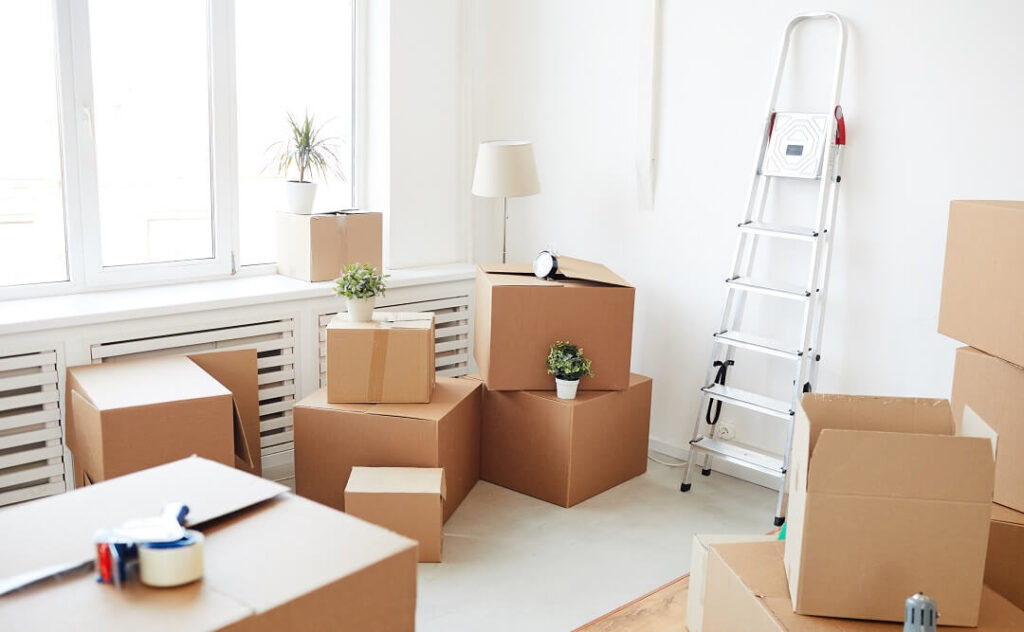Do you think homeownership is out of reach? What if we told you that you could buy a home for half the cost of the listing price and a $100 down payment? You would likely say we’re crazy, but the fact is, buyers eligible for HUD’s Good Neighbor Next Door Program (GNND) can do just that. But what is the Good Neighbor Next Door program and how does someone qualify? Let’s take a closer look at the program, the requirements, and some other similar programs available.
What is the Good Neighbor Next Door Program?
The GNND program is a community revitalization program that is sponsored by the U.S. Department of Housing and Urban Development (HUD). The idea of the program is to revitalize homes in certain neighborhoods while offering a significant discount to those that are eligible. The program is directed toward civil servants in the community and allows them to purchase qualifying HUD homes for 50% off the list price and a $100 down payment if you use an FHA loan.
The program requires you to hold two mortgages on your home. The first mortgage is for the 50% cost of the home, and you are required to obtain your own financing. The second mortgage is a silent mortgage that covers the additional 50% of the listing price. You will have no payments or interest on this second mortgage as long as you live in the home for at least 3 years.
Pros
- You save 50% of the homes list price
- Low down payment
- Ability to finance closing costs
- You can include home repair costs if you use a renovation loan, such as an FHA 203(k)
- Financial investment that builds wealth quickly
- You help revitalize the neighborhood you serve
Cons
- Home options are very limited
- Qualifying homes only stay on the market for 7 days in the program, so you must work quickly
- You must pay a penalty if you move before the 3-year term, as you must pay a percentage of the silent mortgage back. For example, if you sell the home after 18 months, you will be required to pay back 50% of the silent mortgage amount.
- If another GNND bid is placed on the same home, you compete with the other buyers through a lottery system.
Who qualifies for the Good Neighbor Next Door Program?
The Good Neighbor Next Door program is open to civil servants in the community. This includes police officers, firefighters, and EMTs working full-time for a federal, state, local, or tribal government agency. The program is also open to full-time teachers teaching pre-k through grade 12 at a state-accredited public or private school. If the teacher works for a private school, they must provide proof that at least one student at the school resides in the same neighborhood as the home they are purchasing.
All of those eligible must certify that they intend to remain an employee in their profession for at least one year and the home they purchase must be in the community they serve.
How do you apply for this program?
If you meet the requirements for the program, you can check the local listings in your area through HUD's website. Keep in mind that homes are only available for listing for 7 days. When you find a home that you are interested in, you can follow the instructions to submit your interest in purchasing the home. You then must obtain loan pre-approval on your own before the program can complete.
Alternatives to Good Neighbor Next Door Programs
If you aren’t a civil servant and do not qualify for the GNND program, there are some other alternatives available to help you purchase your new home. Here we offer information on a few of those programs.
1. Hero Home Programs
Hero Home Programs believes that everyone should have access to homeownership. Their team works with you to take advantage of available programs, grants, and other discounts designed to help you break the cycle of renting and become a homeowner. They have available programs for renters, educators, first responders, healthcare workers, and military personnel.
2. Teacher Next Door
Next Door Programs, including Teacher Next Door, is the largest national home buying program in the United States. They offer programs for teachers, military, civil servants, healthcare professionals, and first-time buyers. Programs include grants, down payment assistance, Fresh Start Credit Repair, and more to help you move from renting to homeownership as quickly and efficiently as possible.
3. Everyday Hero Housing Assistance Fund (EHHAF)
This is a program designed to help everyday heroes, such as police, firefighters, teachers, social workers, and medical professionals, with their out-of-pocket closing costs. They work with sellers to negotiate concessions and then will gift funds to cover the remaining closing costs. These funds are a free gift and do not require repayment.
4. Union Mortgage Assistance
If you are a member of a labor union, you may have access to special union programs designed to assist with homeownership.
5. Government loans
First-time homebuyers, military members, and veterans may have access to FHA, VA, and USDA loans that offer low or no down payment options, helping to make homeownership easier to obtain.
Homeownership is within your reach
Everyone deserves the opportunity to own a home and there are various programs available that can help just about anyone make the dream of homeownership a reality. At Hero Home Programs we understand how the home buying process can be intimidating and overwhelming. Our dedicated team has access to the best grants, rebates, and loans across the country and we are determined to help you find the right program and get you into the home of your dreams. Contact us today and let us help you get started down the road to your new home.
What is the Good Neighbor Next Door Program? See more on: Our Website
Original post here: What is the Good Neighbor Next Door Program?

